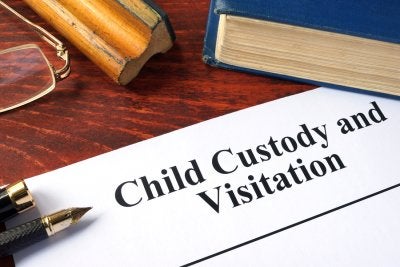-
Legal Penalties for Theft in Maryland
Maryland criminal law recognizes different types of theft crimes, including shoplifting, larceny, and receiving stolen property. All criminal offenses, regardless of the potential penalties, should be taken very seriously because a conviction can affect a person’s reputation and employability for years to come. If you have been charged with theft, contact a criminal defense lawyer in Owings Mills right away. Your lawyer can defend you from a misdemeanor or felony theft charge .
A misdemeanor theft charge is used when the value of the stolen property is less than $1,000. A conviction is punishable by up to 18 months behind bars and fines of up to $1,000. Theft of an item valued at less than $100 is punishable by a maximum of 90 days in jail. Theft of an item greater than $1,000 is a felony and is punishable by up to 15 years and $15,000 in fines. For all theft convictions, the stolen property must be restored to the rightful owner or an equal amount of restitution must be paid.

-
What to Expect from Divorce Mediation?
Many marriages end with a prolonged divorce case contentiously argued in court, but not all divorces have to take this route. Your family law attorney in Owings Mills may recommend that you give mediation a try, especially if you’re interested in getting the case finalized quickly and retaining some control over the outcome. Divorce mediation is particularly helpful for resolving child custody issues. This is because it establishes a foundation of working together for the best interests of the children. Your divorce lawyer will help you prepare for your mediation session.

Preparing for Your Appointment
You can get the most out of each mediation session by arriving prepared. Organize all of your divorce-related paperwork and keep it in one folder. You should bring paperwork that details your assets, debts, retirement funds, and income. The mediator may send a packet of materials to you that you should review in advance. You might be asked to sign a confidentiality agreement, for example.
Identifying the Issues
After explaining the purpose and format of mediation, the professional mediator will establish the rules for speaking. When one party is given the floor, the other person is expected to refrain from interrupting. You’ll each have an opportunity to identify the issues that need to be resolved. These generally include child custody, child support, spousal support, and property division. Within those categories, it’s helpful to work on one specific issue at a time, such as who will live in the family home, how the parties will communicate with each other, and how household rules will remain consistent across both of the child’s residencies.
Discussing Concerns and Proposals
As the group works through each issue in mediation, both spouses will have an opportunity to clarify his or her concerns, goals, and proposals without interruption. After each person finishes speaking, the mediator can help him or her elaborate on these concerns. The other spouse will then have an opportunity to ask questions and respond. The mediator helps each spouse, together or separately, develop a proposed solution. The other spouse may choose to accept part or all of the solution, or offer a counter-proposal. In this way, the group works toward solutions that are mutually agreeable.
-
Common Questions About Supervised Visitation in Maryland
During a divorce in which the spouses share children in common, a family law attorney in Owings Mills can help the parties develop a proposed visitation plan. Normally, visitation occurs at the parent’s house. Occasionally, a judge may order supervised visitation, in which a neutral third party is present for the entire visitation to ensure the safety of the children. If you have concerns about your children’s safety when they are with your ex, talk to your custody lawyer about requesting supervised visitation.

Can I request supervised visitation for my ex?
Maryland family courts generally only require a parent to have supervised visitation if there is a reasonable belief that a child has been neglected or abused by that parent. It is not sufficient to request supervised visitation because you’re concerned the other parent might not help the kids with their homework or enforce limits on TV time. But if you do have reason to believe that your kids are not safe with the other parent, don’t hesitate to voice your concerns to the divorce lawyer.
Where does supervised visitation take place?
This is determined on case-by-case basis. Occasionally, the judge may allow supervised visitation to take place in the home of another relative. Alternatively, supervised visitation may occur at a family services center under the direction of a court-appointed facilitator.
Is supervised visitation the same as a monitored exchange?
Family service centers may also provide monitored exchange programs, but these are not the same as supervised visitation. A monitored exchange program allows the parent to drop off the child at the center and then leave. The other parent then picks up the child for unsupervised visitation.
Is there a fee for supervised visitation?
Some family service centers do charge fees, while others offer free services. Some centers require both parents to pay an upfront intake fee and the visiting parent to pay the hourly charges.
How will I know that my child is safe?
When your child is at a supervised visitation, you can rest assured that he or she will be closely watched by the staff. Staff members are trained to intervene whenever it is necessary to promote appropriate interactions between the parent and child. These staff members have experience working with children affected by divorce and separation, and they can help your child feel safe and secure.
-
An Introduction to Co-Parenting
As difficult as divorce can be for parents, it is far more disruptive to a child’s life. However, responsible co-parenting is a way to limit the negative effects of a divorce on children and help them adjust to the new arrangement. Talk to a child custody lawyer in Owings Mills about creating a parenting plan that is in the children’s best interests.
You can learn more about co-parenting by watching this video. This life coach clears up common child custody issues such as finding a mutually agreeable communication method with the other parent and getting on the same page with regard to chores, discipline, bedtime, and extracurricular activities. This life coach stresses the importance of never saying disparaging things about the other parent where the children can hear.
-
Mistakes to Avoid After a Car Crash
Car accidents can occur in the blink of an eye. Due to their unpredictable nature, it’s essential to be prepared with the basic knowledge of what to do and what to avoid following a crash. For example, did you know that two simple words might jeopardize your claim? For guidance on this issue and many others, you can consult a personal injury lawyer near Owings Mills.

Apologizing for the Crash
Those two simple words that might compromise your case are “I’m sorry.” It’s human nature to apologize as a way of clearing the air, even if the problem was not the fault of the apologizer. But after a car accident, you need to resist the temptation to apologize to the other driver or to speculate as to the cause of the crash. The other driver may use this apology to claim that you were at fault for the crash. As a result, your compensation may be reduced or denied.
Neglecting to Document the Scene
Hiring an accident lawyer is an effective way to get the most money for your case, but even the most accomplished lawyer needs evidence to substantiate claims. The building of your case begins right after you call 911 and check for injuries. First, exchange information with the other driver. The basic information you need to exchange includes full names, contact information, insurance carriers, policy numbers, vehicle makes and models, license plate numbers, and driver’s license numbers. Next, take pictures of the crash site. Be sure to get pictures of the damage of both cars, the injuries of every involved party, and other evidence of property damage such as broken mailboxes or downed street signs. Then, write down a few notes about the weather conditions and traffic patterns. Write down what you were doing immediately prior to the crash.
Delaying Medical Care
If you are not seriously injured, you might be tempted to go about your daily routine and see the doctor later. But the insurance carrier may point to your delay in medical care as evidence that your injuries could have been caused by something other than the crash. Always get a medical evaluation as soon as the police clear you to leave the scene. Your lawyer will need a copy of your medical records and documentation of your medical expenses.
““
-
Can a Child Express Custody Preferences to the Court?
Child custody is one of the most difficult aspects of the divorce process. Ideally, child custody issues for families in Owings Mills may be resolved by the parents through mediation. But when the parents disagree, the judge will make the decisions regarding parenting arrangements. The preferences of the minor child may play a role in the judge’s decision. However, it is not typically the only factor that a divorce judge will consider. The judge will give greater weight to the preferences of the child when that child displays maturity and offers a well-reasoned explanation of why one parent is preferred over the other. Superficial reasons such as fewer rules at one house will not help a child’s case.
Even if a mature child has valid reasons why he or she prefers to primarily live with a particular parent, the judge is not likely to require the child to testify in court. Testifying in front of the parents can be psychologically damaging for a child of any age. Instead, the judge may decide to interview the child in chambers. Family lawyers may be present during the interview, but the parents will not be there.

““
-
Helping Your Child Adjust to Visitation
After a divorce or legal separation, you and your ex will follow a court-ordered parenting plan. This document establishes the type of child custody that both parents will have and it specifies when the child will be with each parent. Visitation is difficult to adjust to for both parents and children, but as time passes, the arrangement will start to feel more normal. Remember that it is possible to petition for a modification of the visitation schedule as your child grows and situations change. Talk to a family law attorney near Owings Mills for guidance.

Maintaining a Routine
Try to imagine how difficult it must be for a child to live in two separate households with two separate routines and sets of rules. Consistency across both households will help your child feel more secure and may even curb problematic behaviors as he or she grows older. Ideally, you and your ex can maintain similar daily routines and household rules, such as finishing homework before playtime and having dinner by a certain time.
Feeling at Home
If you’re the parent who moved out of the family home, you have the added challenge of helping your child feel at home in the new residence. Your child should have a bedroom of his or her own. Your child should arrange and decorate the bedroom to take ownership of the space. Extravagance is not necessary, but comfort is. Resist the temptation to purchase lots of new toys for your child for the purpose of distracting him or her from the new arrangement. Instead, focus on spending quality time together enjoying activities that you would normally do with your child.
Handling Overnights
Overnight visitation can be stressful for young children, particularly during school breaks when a child might live away from the primary residence for a week or longer. Do not take it as an insult if your child expresses homesickness or misses the other parent. Encourage your child to share these feelings openly and offer judgment-free reassurances.
Staying Connected
Children should always feel free to contact either of their parents regardless of which parent they are currently with. Phone calls, text messaging, and video calls strengthen the child’s relationship with each parent. Whenever it’s practical to do so, give your child privacy as he or she chats with the other parent.
““
-
Parenting Skills During a Divorce
As difficult as a divorce might be for you and your spouse, it’s far more difficult for your children. Throughout each stage of the divorce process , prioritizing your children’s well-being and quality of life will help them get through the transition. After a divorce lawyer in Owings Mills files the divorce petition on your behalf, you and your spouse should sit down together with the children to break the news.
This featured video offers some tips for telling kids about a divorce or legal separation. These parenting experts recommend avoiding the details of why the divorce is necessary. Instead, offer concrete examples of how daily life will change and provide plenty of reassurances of your love to help your children feel secure. Both during and long after the divorce, it’s essential to avoid disparaging your ex in front of the kids; they shouldn’t feel as though they must choose sides.
-
A Quick Look at Monitored Exchanges
Depending on the type of child custody agreement you have, your divorce lawyer may recommend a monitored exchange when you and your ex-spouse bring your children back and forth to each other for visitation. If you have entered into a custody agreement that includes a stipulation for monitored exchanges or if you want to add a monitored exchange to your existing child custody case in Owings Mills, your divorce lawyer can help you understand what to expect.
Monitored exchanges reduce the risk of conflict between parents when they have to face each other while sharing custody of their children by ensuring another party is present to witness the exchange. They can happen under the guidance of a family member or friend that both parties trust or at a court-appointed facility. Frequently, monitored exchanges are recommended to ensure that children and parents get to maintain their relationships, even when the relationship between the parents has become acrimonious. They allow the parents to focus on their time with their children instead of the stress of confronting an ex at the start and end of each visitation period.

-
What to Expect When You Meet With a Divorce Lawyer?
Meeting with a divorce lawyer for the first time can be emotional and overwhelming. Fortunately, you will almost certainly walk away from the meeting feeling better than when you walked in, with many questions about the future finally answered and with a plan for moving forward. As you go into your first meeting with your divorce lawyer in Owings Mills , here is a look at what to expect, so you can be prepared and ready to focus on the issues at hand.

General Case Review
Before your divorce lawyer can give you the right advice, he or she must understand as much as possible about your situation. First, he or she will need to know if your spouse has already filed for divorce or if you plan to file yourself. Next, you’ll need to review the circumstances that have led to your divorce. The reasons you want a divorce can have an impact on the approach your attorney takes to your case. For instance, if your divorce was precipitated by your spouse’s affair, that circumstance can influence the type of divorce you decide to pursue and decisions about alimony and child custody. Although your divorce attorney is not a counselor, he or she is accustomed to dealing with people in distress, so don’t be concerned if you become emotional, and don’t feel embarrassed to be honest about your marriage and your reasons for divorce.
Document Review
It’s important to prepare a number of documents for your first meeting with your lawyer, if possible. The most crucial information to have is financial information. Bring bank statements, the past two years of tax filings, statements on your IRAs, mortgages, credit cards, and other debts. It can also help to make a list of your living expenses and bring pay stubs from both you and your spouse. Child support and spousal support will be determined in large part by these factors. If you have documentation of any of the issues within your marriage, such as receipts that are linked to an affair, you can also provide these to your divorce lawyer during this meeting.
